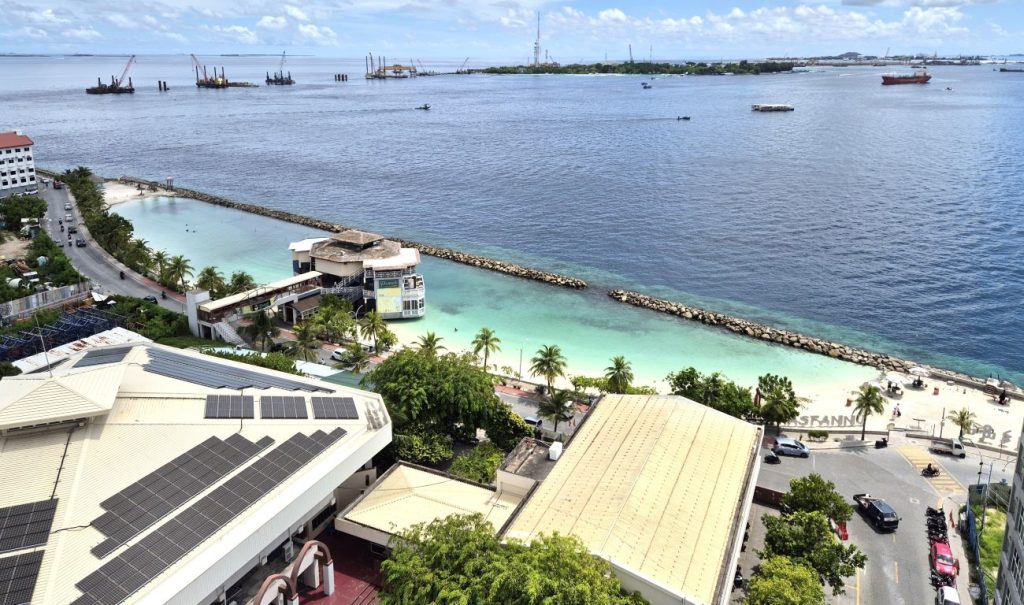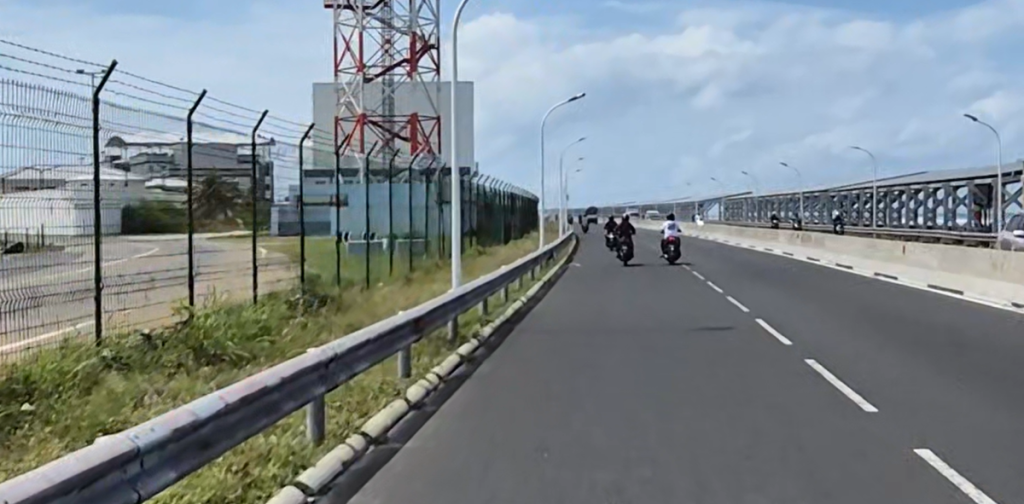Floating Solar Farm In Addu Atoll Will Be Risky
The ministry of tourism has recently expressed interest to start a floating solar farm project in Addu Atoll in the South. Potential investors may submit their proposals to the ministry to get it started. Renewal energy is something very important to the Maldives as it strives to reach carbon neutral in the near future. Global warming has been labelled as the cause of sea level rise that endangers low-lying countries. The impact on Maldives is thought to be devasting as the entire nation lies just a metre above sea level, there are no high grounds in the country. A slightly more safer island is the new reclaimed city next to the capital Male’. Known as Hulhumale’, is this the second major metropolis that is considered as part of Male’. Velana International Airport connects Male’ with a bridge while a high way connects Hulhumale’ to the same. This is the economic hub of the country where a third of the country’s population live.

Solar energy is one the safest and cleanest forms. Private parties doing the investment means it would not be a burden to the government budget. It is likely that the government plans to buy a unit of solar energy for current amount spent on diesel energy. Hence, there is no extra cost for the residents as well. Manufacturers of solar panels may find this particular interesting.
Instead of building the solar farm in land the government expressed it to be built on the sea. This would be a major factor as there are too many risks involved. Maldives experiences monsoon twice a year and rough sea conditions could be devasting for floating solar panels. It could also incur extra maintenance costs for the platform while the solar panels themselves may get affected by the corrosion caused salt particles in the atmosphere.

Maldives is known to have the world’s largest seaplane operation. More than half of the resorts rely on seaplanes for guest transfers. Seaplanes require a flatform for boarding and disembarking. Some resorts keep a fixed platform attached to a wooden jetty while others have floating platforms that require a boat to transfer guests. Floating platforms require regular maintenance checks. Each platform being constantly under attack by waves it creates vibrations leading to damages. Several anchors at different directions keep the platform in place in any weather condition. Despite all these, severe weather sometimes causes platforms to get loose from anchors only to find out washed ashore at a near by island. This happens every few years. Therefore, the floating solar farm will also be exposed to the same risks. Otherwise it has to be built in a lake or pond where conditions are stable and calm. Floating solar farm in open sea or even the lagoon should be far too risky for any potential investor. However, a fixed platform in the lagoon could be something workable as it is proven to the stable in the Maldives. Almost all resorts have water villas, some resorts have concrete structure while others use treated wooden planks.
